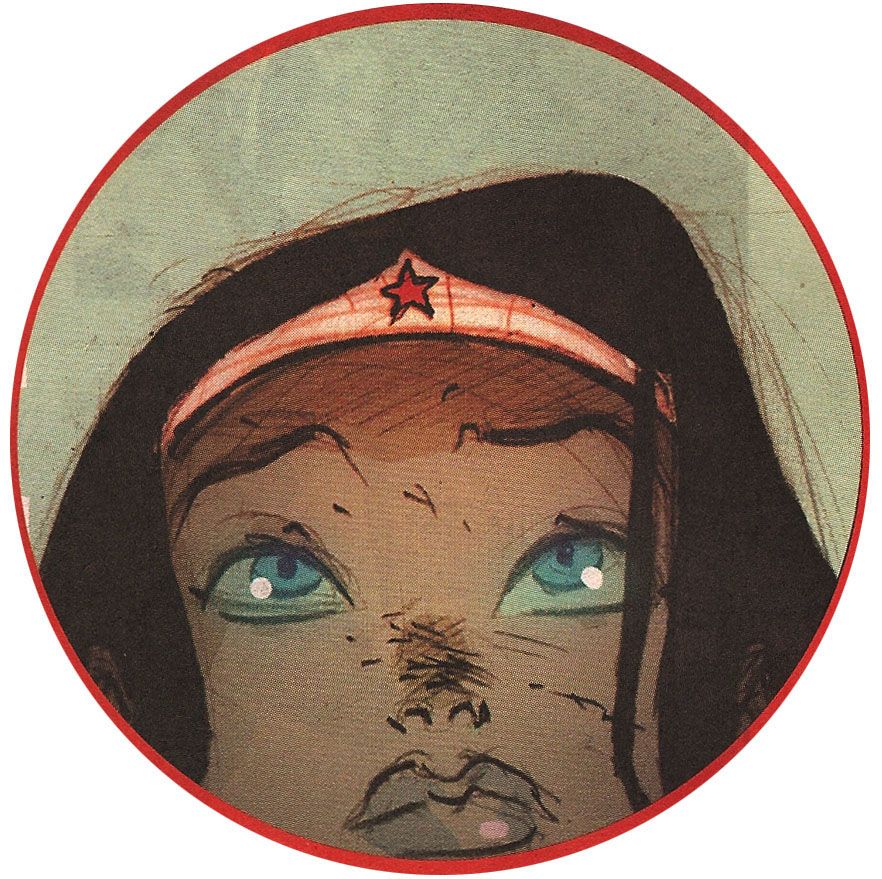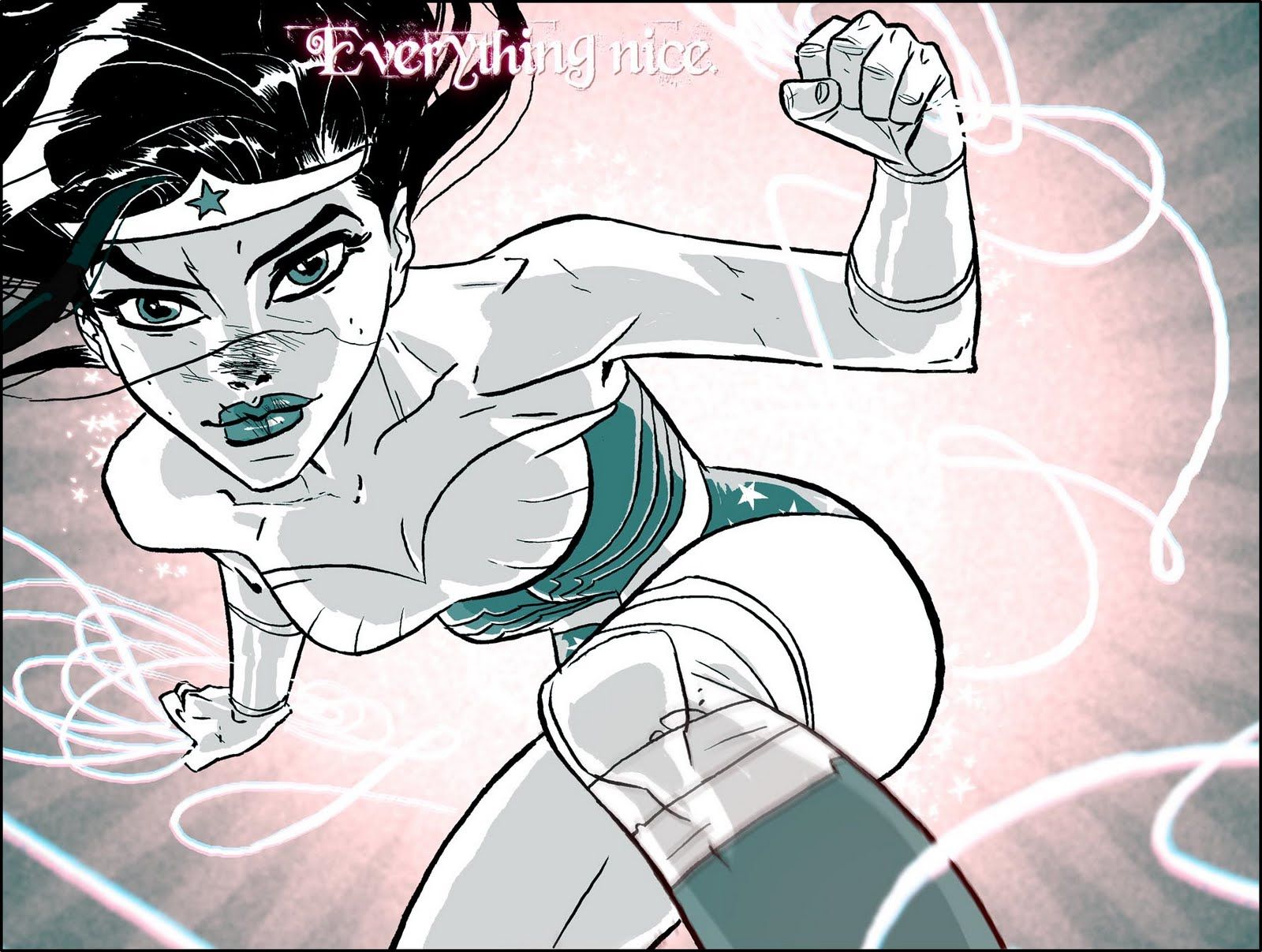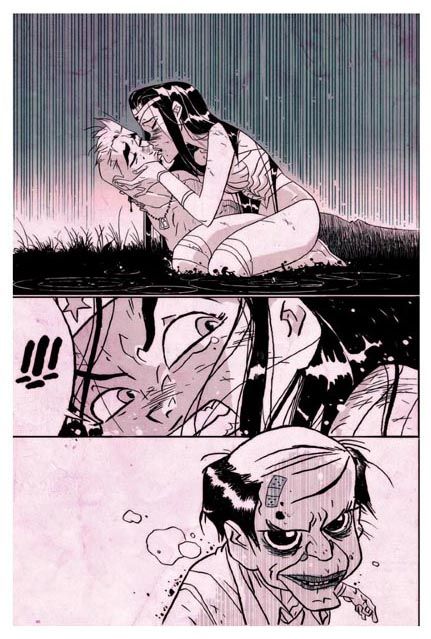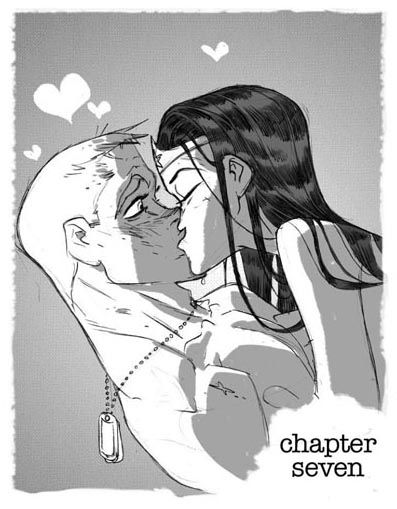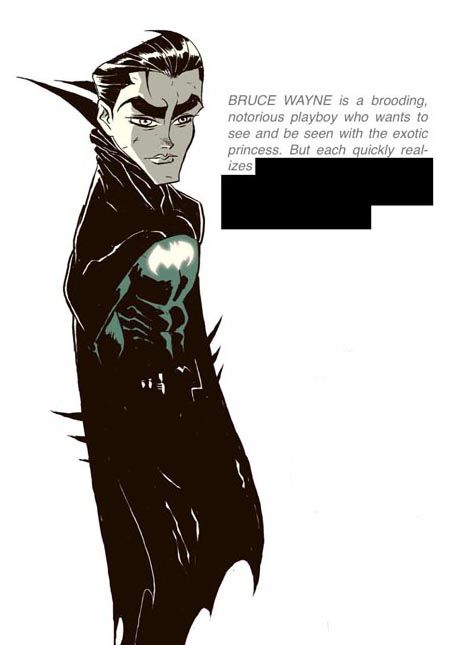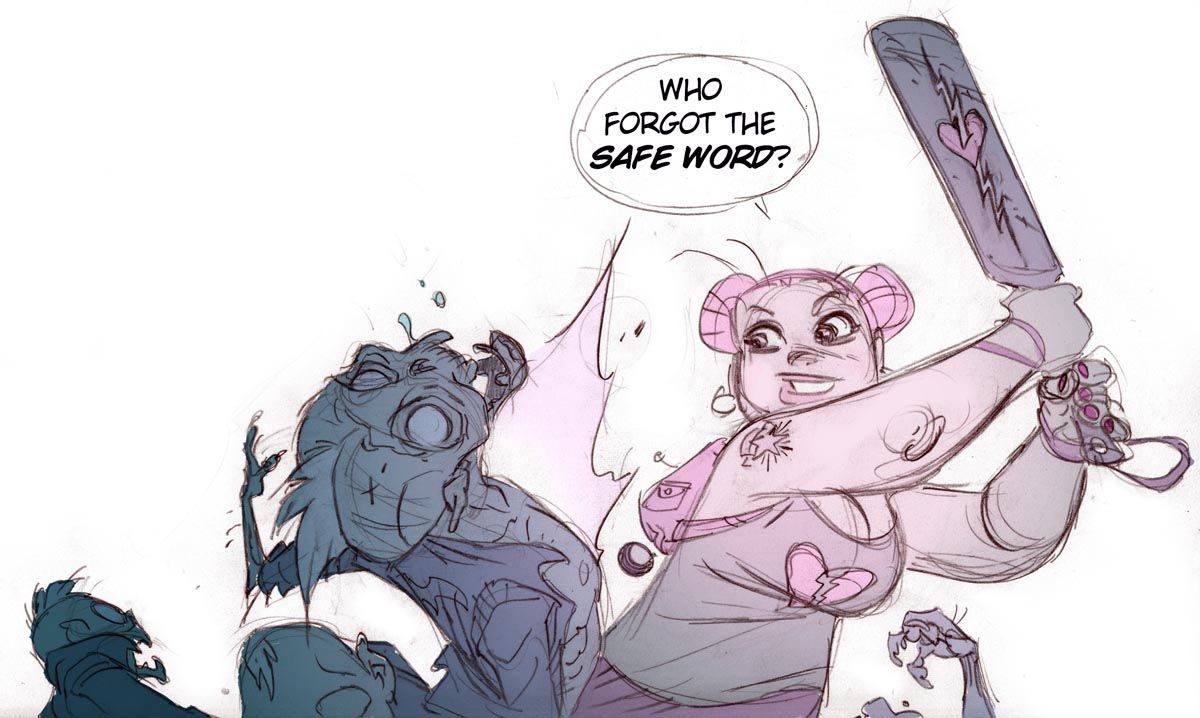As I mentioned recently in the comments on one of Greg Burgas’ posts, I am painfully burned out on mainstream comics right now. It’s been building for a while now, but the last four weeks have left me with a massive stack of mostly unread comic books. Sure I read a few, and I’ve flipped through most of the rest multiple times, but looking at the pile…imagining reading them…is suddenly akin to something like Chinese water torture.
This has happened to me before, a few times actually, and it generally results in me taking a sabbatical of sorts from reading mainstream books for undetermined amounts of time – only to later return with vigor (and cluelessness as to why I ever needed to take a break from something so awesome). However, this time, I find I’ve built a lot of little bits of my life around comics – my blog is regularly about comics, and I have this column, not to mention a superhero novel out on submission to publishers - so for the first time I don’t feel comfortable just walking away.
So I’ve been trying to analyze my burnout and what may be causing it (and maybe what caused it in the past) and while it's not sexy, the only answer I can come up with is plain old boredom. Right now, like many times before, I just find myself feeling like I’ve already read everything before…nothing mainstream is feeling very new or fresh or interesting to me. And very little of it feels fun. At the same time that everything seems boring, I’m also paying a fortune (and far more than ever before) on a weekly basis for the privilege of that boredom. I don’t know about you guys…but I just don’t have that kind of cash, certainly not for something that’s leaving much to be desired.
But rather than dwelling (more than I have already) on what’s NOT exciting me, I tried this past week, in order to get out of my funk, to think of things that I do find exciting right now in mainstream comics and the first thing that sprang to mind was Ben Caldwell’s YA (young adult) Wonder Woman Pitch that’s been making the rounds on the internet. There’s nothing about Caldwell’s fresh take on Wonder Woman that feels seen before or dull to me, it seems exciting and shiny and new and full of potential. The kind of book that could jumpstart me out of my malaise.
Caldwell’s take, from the attitude (young and hip and continuity free, at least to start) to the format (digest size) to the mythology (new takes on old favorites) to the visuals (very cartoony with a skew toward the generally female friendly Manga style) feels like such a refreshing take on Diana – one I’ve never seen before in comics. Considering all the variations (and books) we have for Batman, Spider-Man, Superman (sometimes, he's only got one book right now I guess) and even characters like Deadpool...I’m not sure why the Queen of all superheroes - Wonder Woman - isn’t worthy of two versions herself?
I suppose I know all the standard arguments against a book like this. “Kids books are loss leaders”; “Wonder Woman’s EXISTING book doesn’t even sell well enough”; “Minx was a failure”; and even “Well, we just shut down our whole Manga imprint, why would we choose to do a Manga skewed superhero title”…
All of those things may be true but that doesn’t mean that the right combination isn’t still out there, for example “a YA digest book about the most well-known and powerful superheroine in the world, Wonder Woman”…I don’t know, it sounds like a really great idea to me, especially if I say it while looking at some of Caldwell’s stunning and straight up badass imagery.
But, just for fun, I'll take a swing at refuting the above arguments…
”Kids books are loss leaders”. This is probably true, I believe it, if only because kids don’t seem to be reading (western) comic books. But that doesn’t mean you can or should just stop making books for them. If you don’t make books for them they CERTAINLY won’t read comics because there are a million other things for them to spend their money on that is geared directly at them. If you don’t even try to court them it’s like just giving up entirely, because it means you’re not even trying to get any new readers. You’re just saying you’re satisfied with your existing readers, who, myself included, are getting older and older and are eventually going to literally die out. That seems like a bad business model any way you slice it. I think maybe there has to be some sacrifice on the expected performance of YA books with the understanding that what they’re really there to accomplish is to build an audience. Doing books for kids or young adults is an investment. And sometimes investments don’t pay off right away…they pay off down the line. When you’ve hooked those kids into comics and they become regular readers and better yet your next generation of adult readers. To continue the drug metaphor (perhaps at my peril) you give a discount to get someone hooked, and once they’re hooked, then you can charge whatever you want (although you shouldn’t, because you're slowly killing your adult readers too, fyi).
New readers are not a luxury, but a necessity, at whatever that costs you. Plenty of media and industries are making a play for their dollars and affection, if we don’t even try, why will they bother with us?
For a related discussion, that tackles a different issue on the surface, but that I think overlaps interestingly regarding the industry, check out Michael May’s excellent piece from last week on Robot 6. The piece and the ensuing reader comments are both worth a look.
As for Manga, as I’ve said here before I’m woefully undereducated when it comes to Manga, but I guess I’d just say that it seems to me that there’s a real proven record thus far of girls responding to Manga and reading it in big numbers. So perhaps a way to help coax them into mainstream superheroes would be through a book that has both Manga and superheroes, or more to the point, the most badass female superhero of all time – Wonder Woman. Just a thought.
As for the idea that Wonder Woman’s existing title doesn’t (or hasn’t) sold well overall, I doubt anyone knows for sure why that is, but whenever I see it debated by fans, critics, and professionals, I always see a lot of discussion about her complicated origin, somewhat weak or at least limited rogue’s gallery, and convoluted history/continuity. Though I’m not a fan of re-boots in general, I think I could certainly be a fan of a new take, geared at a new audience. And I’m inclined to think that a nice fresh continuity free start to a powerful female superhero might appeal to old fans as well as a new younger generation of women looking for powerful role models but unable to find them in comics amidst the T&A and continuity porn of your average comic book.
The Minx question is the most deadly, because it’s the closest example to what this book - that doesn't actually exist would be – a digest size book geared directly at girls. Via Minx that was failure for a few legitimate reasons – reasons that we have not managed to solve – the most obvious of which is that girls don’t go into comic stores in big numbers and we’ve failed to get these books into the YA section of the bookstore and library with any consistency. This is a problem that is yet to be solved. At my local Barnes & Noble there is a fantastic YA section and a fantastic Comics/Graphic Novel section, and I was pleased to see some YA comics (mostly trades of Runaways) housed in the YA section, but I was also disappointed to see that the Manga was both separate from the graphic novels, and housed next to the YA books, suggesting…hell, warranting an easy bleed between the YA and Manga sections, while the Graphic novels were on the other side of the store…and not somewhere that teen readers would ever venture unless deliberately seeking something out. And that’s at a great well-maintained store, I’m sure the problem is worse in other locations.
How is this solved? I have no idea, but it seems to me there must be some way to do it. And mainstream comics, now backed by Disney and Warner Bros., seem like they should be powerful enough to get it done.
But even independent of the placement and access, Minx had other issues, including the fact that there was not one single superhero book in their opening line up. I enjoyed many of the Minx books, but I do think that it was a mistake not to offer one single superhero title, when that is the bulk of mainstream comics offered via DC and Marvel. If there was any hope of getting girls reading Minx and then crossing over into other mainstream books, why would you not create better gateway books – like a Supergirl or Wonder Woman title that a girl could fall in love with and be prompted to try to seek out more of the same?
Many girls like slice of life and relationship stories as dominated the Minx line, but just as many hate that kind of stuff and prefer horror and whodunits. I think many girls would be surprised to find out that they like superheroes, but only if they could first find one geared a little more toward them – which as I’ve mentioned before likely doesn’t involve reinventing the wheel - just removing the implied ‘no girls allowed sign’ that hangs on so many books.
And for those that continually get angry at even the hint of change, at the idea that mainstream comics aren’t and shouldn’t be for girls or women, as a comic lover going way back that doesn’t want them to bite the dust (despite my current boredom), I firmly believe that getting girls on board with comics is one of the best ways we can help save this floundering industry. Bringing girls and women (and most importantly their dollars) on board doesn’t mean there isn’t also room for “just boy” books, or even mean the end of T&A, if that’s something you’re attached to. There’s room for all of us in the medium (as independent comics have well illustrated over the years) but without women you guys are having to carry this industry on your backs alone…and I sense it’s getting heavy.
Without solving the access problems I suspect any female geared book – including a badass YA Manga-ish Wonder Woman digest size– even by a talent like Caldwell – would fight the same uphill battles that Minx did three years ago, but I guess my point is, it doesn’t matter if it’s successful overnight. You have to spend money to make money and you have to invest in something in order to eventually see a payoff.
There is no better mainstream comics pay off than capturing women readers, most especially young women readers. Yes, it’s a huge challenge, but if anyone can manage it – the spoils will be significant considering that girls read fiction in record numbers - in fact women make up 80% of the fiction readership - why shouldn’t some of those dollars go to comics? Well, right now, it’s at least in part because we don’t produce much that appeals to them, or that they KNOW appeals to them. Figuring out what works for a revised demographic takes time and money and several swings at bat, but Caldwell’s pitch and passion strikes me as a potential homerun with the right platform (a Fables/Vertigo style ad during some carefully chosen television shows certainly wouldn’t hurt in getting the message out to girls so that they even know we’re making something for them).
Why would a publisher continue to ignore a totally untapped market? I’m not making some silly argument that great books made more girl friendly in hopes of catching female readers will do well, sell well, or be anything other than total flops, but if you want to be the publisher that eventually makes a fortune by figuring out how to get girls into comics…guess what? You have to be visionary. You’re not just going to stumble into that success without any risk, without spending (and wasting) plenty of money. But the first publishers to figure out how to capture and keep women readers are going to be freaking kings…who doesn’t want a shot at that?
C’mon DC, fortune favors the brave and all that crap – don’t you want to be the first to take the prize? In fact, how ‘bout this…I double dog dare you.

